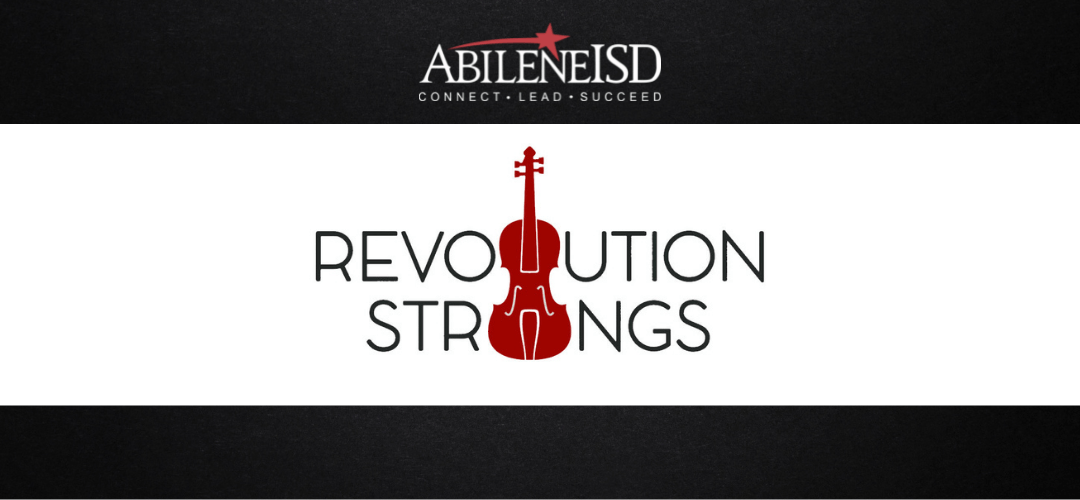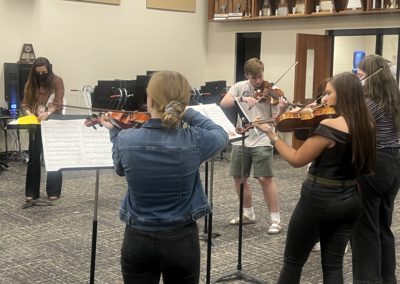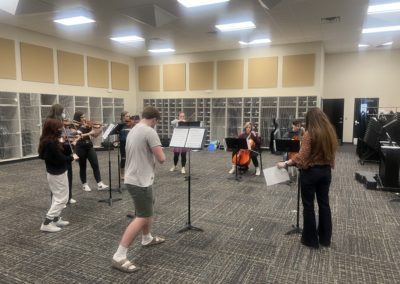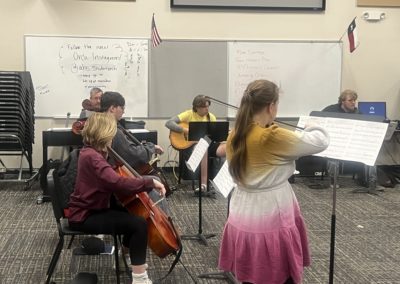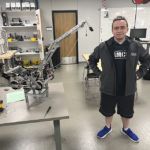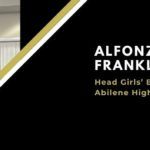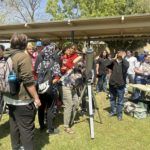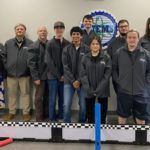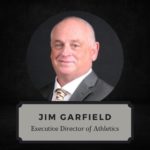By the time Revolution Strings hit the stage at the Lila Cockrell Theatre in San Antonio on Feb. 10, it had been almost two years since the group had performed in front of such a large audience.
And there were nerves. There were butterflies. There was doubt. There were questions about remembering how to perform. All the things that go into a first performance were present, only multiplied because of so many COVID-related cancellations since March 2020.
Then they hit the stage and electrified the crowd of approximately 2,300 people gathered in the theatre as part of the annual Texas Music Educators’ Association convention.
“Getting them ready for this performance was very hard,” said Revolution Strings director Darcy Radcliffe. “We had so many distractions leading up to our performance that it made it difficult to get everything done. I got COVID right after the Christmas break and then we had some other people in our group test positive as well. Then we shut down schools for a couple of days because of COVID, we went to San Angelo for regionals, and we performed in both school musicals. Then we shut down schools for two days in early February because of snow and ice, all of which combined to cut down on our available practice time. On the day of our performance, I was trying to stay peaceful, but it was difficult.”
She had no reason to worry. Playing a piece titled “Devil’s Nightmare” by Dean Marshall (the same composer who penned the song “Hello World” that Revolution played for the video it created in the spring of 2020), the group made it to San Antonio on Feb. 9 for a six-hour rehearsal, working on everything from music to choreography to stage presence. It all came together in the live performance.
“Not only were we working on the music in rehearsals, we had to work on stage performance and performing for an audience because we had some in our group who had never been on the stage in front of a crowd that large,” Radcliffe said. “We did a lot of playing to the camera in rehearsals. I would walk around with my camera and put it in their faces and tell them to ‘smile, smile, smile.’ After the musicals were over at both schools, we rolled mirrors out onto the stages and practiced in front of those. We still weren’t where I wanted us to be in our last rehearsal before we left for San Antonio. We rehearsed for six hours on (Feb. 9) and it was really good and only got better from there. I thought when they were in front of an enthusiastic crowd, they would flip a switch and they would be on fire, and that’s what happened.”
Cooper High School senior Natalie Stefan — one of the few members of the group of 11 who has experience on a big stage — said it didn’t take her long to remember what it was like being on stage once they finally got to the morning of the performance..
“As soon as I walked out and saw the theatre, the adrenaline rush was awesome,” she said. “It was exhilarating. My hands started sweating, and that never happens. I wasn’t on stage to start because I have a solo in our song, so I got to watch a little bit. That whole experience was the one I’ve been looking for over the last couple of years of being part of this group.”
The group had several gigs lined up for the spring of 2020, but as COVID ravaged the country, eventually shutting down schools in early-to-mid-March, those events were canceled one by one. That left Revolution with rehearsals only — sometimes via Zoom — and perform only three times last year, including at both the Abilene High and Cooper graduation ceremonies in May.
“Just knowing we had a goal to work toward gave everyone drive and purpose,” Abilene High School junior Ethan Dunn said. “That’s what’s been so hard the last couple of years because we lost some of the gigs or someone would quit because we weren’t able to point to something as the reason to keep working. It was great to prepare something that was really solid and meant something to us and the people who were there to hear and see us perform.”
And for one of the group’s freshmen, seeing the crowd reaction – as well as that of her fellow members of Revolution – was one of the best parts of the performance.
“It was so cool to see so many smiling faces and realize they were really getting into the performance,” Cooper’s Trinity Townsend said. “Even the people in the balcony were into it. I know that the upperclassmen haven’t had much of a chance to play in front of big crowds the last couple of years because of COVID, so I knew it was so much fun for them. They’ve been practicing for a long time and they finally got to perform in front of a big crowd.”
One of Radcliffe’s mantras for her group is that they play “for an audience of one,” and she asks them who that one person or that one “something” is.
“Before they walked onto that stage at TMEA, I just reminded them that it’s about an audience of one,” Radcliffe said. “‘Who’s your person?’ It’s not about the 2,000 people in the theatre, it’s about that one person, and it could be someone who’s not even alive right now. But I wanted them thinking about that instead of getting caught up in the 2,000 people.”
They were able to keep that perspective during a performance that marked the first time since a playing at TMEA in February 2020 that the group was on a stage in front of large audience. Their performance had a little bit of help from the piece of music they played.
“When we got the invitation (in early September 2021), I told Dean Marshall that I needed a showstopper of a song,” Radcliffe said. “The song starts off in a minor key and is very pensive and moody; a little bit like a nightmare. I think we can all identify with that after these last couple of years. The last half of the tune is in a major key and it’s very exuberant and upbeat and hopeful, something I think we all want to be able to get back to sooner rather than later. There were three points in the song where the audience just erupted in applause and that felt great. The song has a big ending, and it ends with the kids holding their bows in the air and the crowd lost its mind.
“During all those months when we were just practicing and not performing, we tried to keep the perspective that we were lucky to just be on stage or in a rehearsal room making music together,” she said. “We kept our standard high in the midst of all of that. We had to draw back to just the joy of being together and making music, and we would go back to the fact that this is reason we do this anyway: to make music because it’s what we love. And that came through on the stage.”

